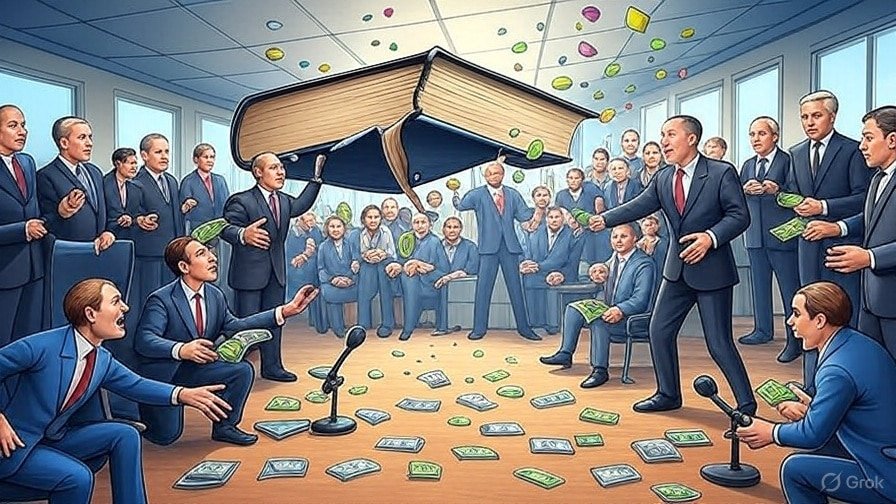Media & Language Battles – Words as Weapons
Once upon a time, the media reported the news. Today, it polices the words you use. From banning “offensive” terms to inventing new vocabulary overnight, language itself has become a battlefield – Culture wars.
These media and language battles are sold as progress, a way to protect vulnerable groups. In reality, they often divide society, shut down debate, and distract from bigger issues like inequality and power. Words become weapons — not against elites, but against ordinary people who can’t keep up with the shifting rules.
Table of contents
The Politics of Words
Every cultural movement comes with new terms, but woke politics has turned it into a full-time industry. “Latinx,” “birthing people,” “equity” instead of “equality” — the language shifts constantly.
Refuse to play along? You risk being labelled backward or bigoted. Accept it? You’re trapped in someone else’s narrative. Either way, the focus is on words, not on fixing the problems behind them.
Media as the Enforcer
The media isn’t neutral here — it drives the changes. By amplifying outrage over language, it keeps audiences hooked. Headlines scream about a politician using the “wrong” term while quietly ignoring who funds that politician’s campaign.
Outrage isn’t just amplified — it’s monetised. Social platforms discovered long ago that anger drives clicks, shares, and ad revenue better than calm debate. That’s why outrage trends while reason sinks. We explore this further in our article on Social Media and the Outrage Economy.
It’s a profitable distraction: endless clickbait about language “wars” instead of hard questions about economics and class.
The Fear Factor
In workplaces, schools, and online, people now censor themselves to avoid saying the “wrong” thing. Jokes disappear, discussions shrink, and free thought gets replaced by cautious silence.
The irony? A movement supposedly about inclusion ends up creating fear, resentment, and conformity. The loudest voices win, not the most thoughtful ones.
Who Benefits?
- Media companies – endless outrage sells better than serious reporting.
- Corporations – easy PR wins by updating policies and language guides, cheaper than real reform.
- Politicians – can posture about “respect” while ignoring economic inequality.
Meanwhile, ordinary people struggle to follow shifting speech codes while their actual problems — housing, jobs, bills — go unsolved.
Why It Matters
Language matters — it shapes thought and culture. But when language itself becomes a political weapon, society wastes energy on fights over words while ignoring deeper struggles.
The danger isn’t that words evolve. The danger is when debates over words replace debates over wealth, power, and fairness.
Conclusion
Media and language battles are the culture war’s frontline. They divide people, silence dissent, and keep attention locked on symbols instead of systems.
Next time the media explodes over a word choice, ask: who gains when we argue over vocabulary instead of inequality?
This article is part of the Woke Politics Explainer Series, our guide to how ideas spread from Critical Theory into activism, business, politics, and everyday life.
👉 For the bigger picture of how corporations gained their power, visit The Power of Business & Corporations Explainer Hub.
FAQ Section
What are media and language battles?
They are conflicts over which words are acceptable or offensive, often driven by media and activism.
Why are language battles controversial?
Because they silence debate, create fear of speaking freely, and distract from deeper social and economic issues.
Who benefits from media and language battles?
Politicians, corporations, and media companies who profit from outrage while avoiding accountability on bigger issues.
Do language battles help society?
They may raise awareness but often create division, resentment, and distraction from real struggles like inequality.



